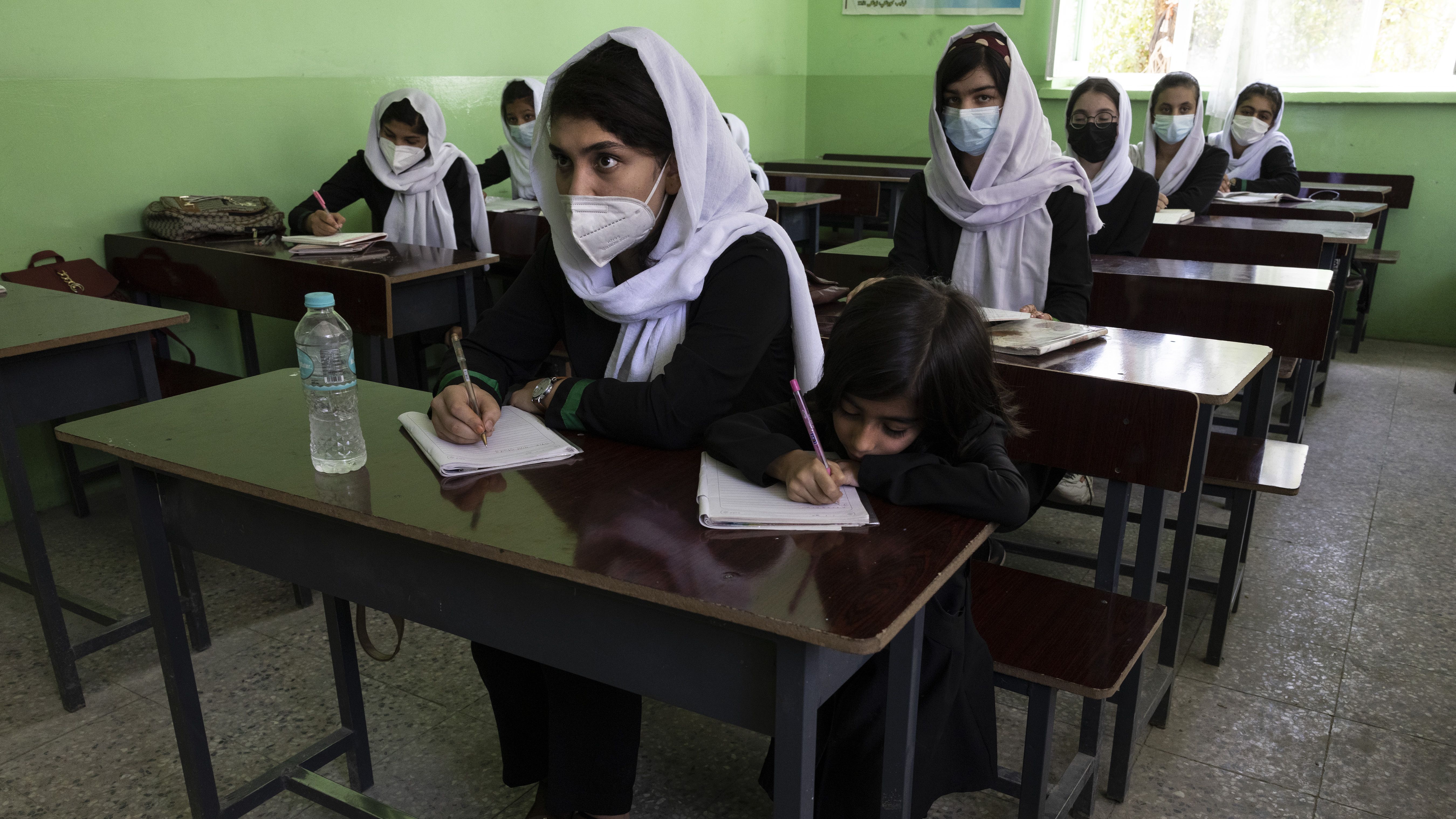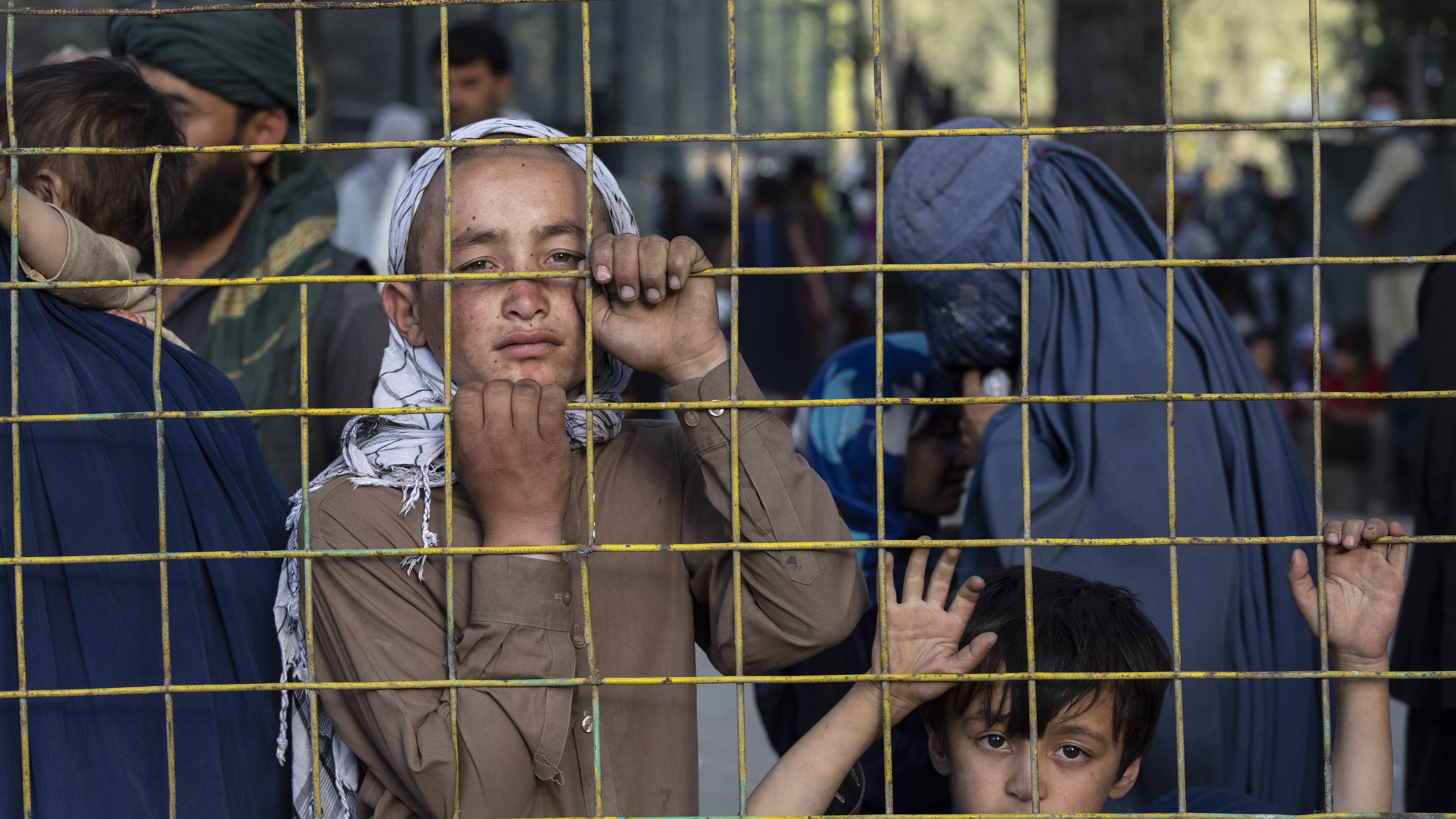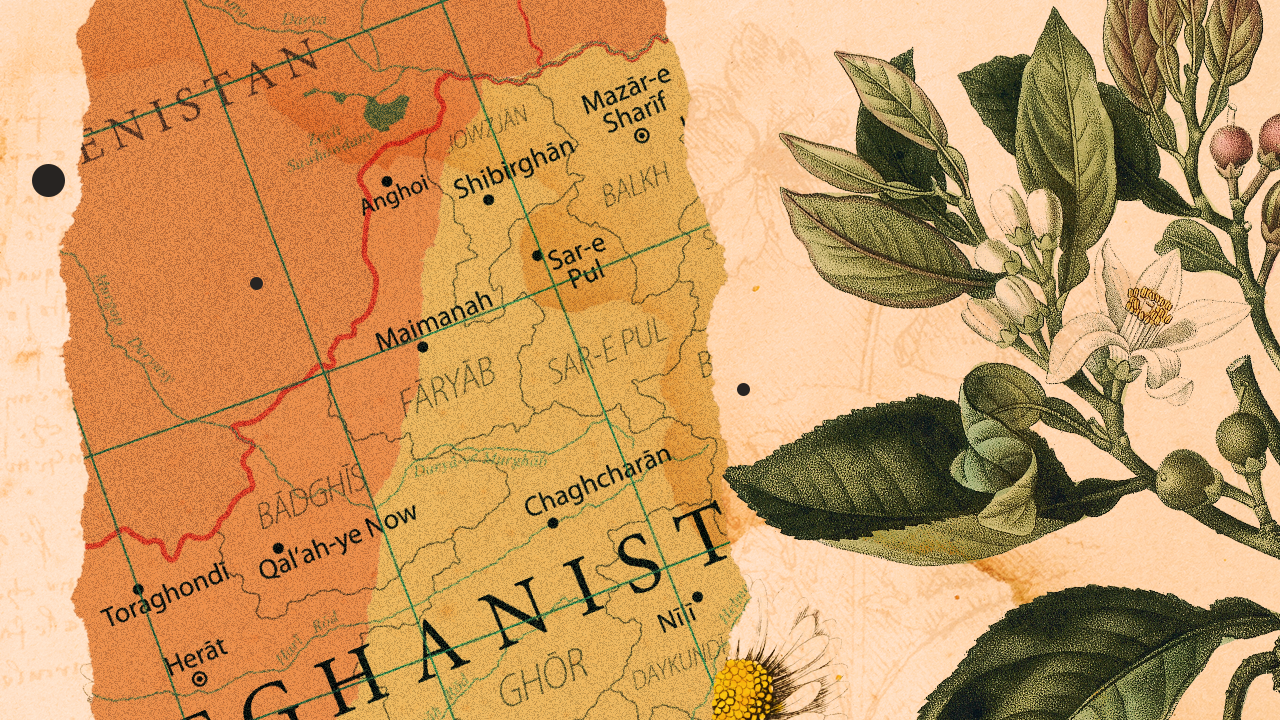The Future of Afghan Women and Girls Depends on What We Do Next
Between the U.S. occupation and the Taliban, supporting resettlement for Afghan women and vulnerable individuals is long overdue.


Trigger warning: This article contains references to the Taliban's historical mistreatment of women.
Over the past few days, I’ve been glued to my group chats with fellow Afghans of the diaspora, who are using every resource they have to help overseas, while watching my own parents, who were born in Afghanistan, communicate with our family there to help get them evacuated safely. The footage of my compatriots clinging to a U.S. military plane, willing to risk their lives to escape Taliban rule, is in stark contrast to the country I grew up visiting as a little girl before 2001.
My earliest memories are of frolicking through the streets of my family's village in Herat, a city known as the cultural heart of Afghanistan, which Persian poet Rumi likened to the pearl of an oyster. I remember using pretty pastel-colored money to buy gum from street vendors, guzzling sickening amounts of Fanta and cheesy corn puffs with gaggles of cousins who followed each other everywhere, and coming home to a matriarch who held me sweetly by a heated blanket. My experience was so different from what is portrayed on the news, in first-person shooter video games, and the yellow-tinted action movies of Hollywood, but my experience is also uniquely American. I have been lucky to be in the comfort of my home in the States since.
Now, after two decades of American occupation, Afghanistan is suffering a new one: The Taliban has taken control of the country and caused the Afghan government to collapse after the U.S's withdrawal ended in chaos. I can’t help but think about what the future will look like for the women and children and families in this country. The Taliban is known to ban women from education and employment, marry young girls, kill children, destroy artifacts and artwork, and rape and mutilate women.
The thought of what women’s lives might be under Taliban control is horrifying, but I'm reminded of Toni Morrison’s words: There is “no place for self-pity...no room for fear.” The Afghan women I know understand this. They are autonomous, with their own desires and agencies. They will not give up without a fight. And while some women are bravely protesting this horrible new form of occupation out in the streets, others are burning their degrees out of a need for survival.
Since 9/11 and the inception of the U.S. invasion, American women have rallied to 'save the Afghan women and children' in a paternalistic attempt to legitimize the war in Afghanistan under the guise of feminism and care.
As Americans and global citizens, we have to continue advocating for them. While doing so, we must be aware of the intentions behind our calls for safety and compassion, and educate ourselves properly. To be an Afghan woman is to be exploited—by lawmakers, photographers, and white women in power. Since 9/11 and the inception of the U.S. invasion, American women have rallied to “save the Afghan women and children” in a paternalistic attempt to legitimize the war in Afghanistan under the guise of feminism and care. It was a perfect emotional ploy devised to tug on the hearts of Americans, a flawless execution of branding, and a way to get people on board with the war regardless of political affiliation. We must not make the same mistake when it comes to providing compassion, funding, and safety for the Afghan people today.
Right now, there are too many hoops Afghans must jump through to make it out of the country safely. We must urge Congress and the Biden administration to protect the airport in Kabul so military and commercial flights can continue to operate and safely evacuate Afghans. The administration must also announce an unprecedented open-door refugee policy so my family and so many others can find safety. We need to expedite the process for Special Immigrant Visas (SIV) and Priority, 1, 2 and 3 (P1, P2 and P3) applications. The U.S. should broaden the scope of the P2 program to include vulnerable Afghans—especially women and girls, human rights defenders and activists, the LGBTQ+ community, and ethnic and religious minorities—who have not yet been direct recipients of aid or protection.
Get exclusive access to fashion and beauty trends, hot-off-the-press celebrity news, and more.
As for the international community, countries should change their visa requirements to make it easier for people to resettle; they should step up to protect our Afghan brothers and sisters, offering humanitarian aid so that millions of Afghans can meet their basic needs. Any global citizen should feel compelled to help and agree that no family deserves to starve in crisis.
After two decades of war in Afghanistan, many young Afghan-Americans like myself have never known a life without the invasion—without the concerned calls back home, moneygrams, and gatherings around the TV to see what the latest atrocity was. As I continue to watch in horror with my fellow Afghans, I will go to sleep at night dreaming of picnics in my uncles’ yards while Ahmad Zahir plays on the radio, hoping for reparations and a world where Black and Brown bodies aren’t used for exploitation. The damage has been done; but hope, solidarity, and action are all we have left.
RELATED STORIES


Rona Akbari is an Afghan digital media producer, writer, and filmmaker based between Brooklyn and Florida.
